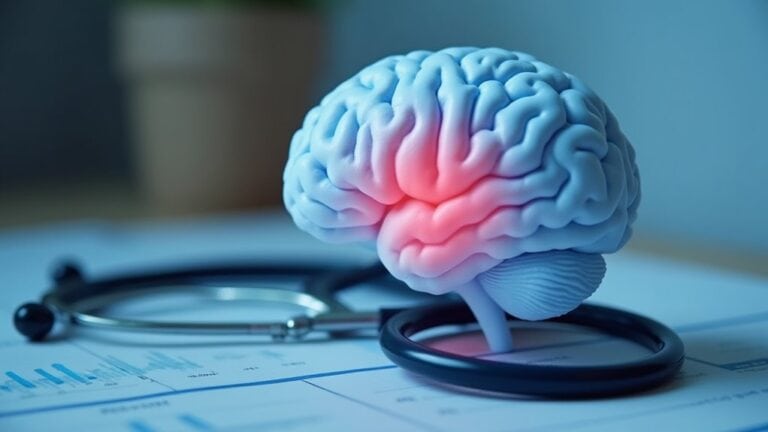Sudoku isn’t just a fun way to pass the time it’s a workout for the brain. Research suggests regularly tackling these puzzles can sharpen memory, improve concentration, and even slow cognitive decline. The logic and pattern recognition required stimulate key mental functions, making it especially valuable as people age. Whether someone’s a beginner or an expert, there are tailored strategies to maximize the benefits. The real question is could Sudoku be the missing piece in keeping the mind sharp for years to come?
The Science Behind Sudoku and Brain Health
Sudoku isn’t just a way to pass the time—it could be giving your brain a workout. Research suggests puzzles can help maintain brain function as people age.
A 2019 study of adults over 50 found that those who regularly engaged with puzzles displayed sharper attention, reasoning, and memory compared to non-players. Their cognitive abilities resembled brains 8-10 years younger in specific areas.
While puzzles don’t stop cognitive decline, they might slow its progression by keeping the mind active. Scientists debate whether these benefits are temporary or long-term, but evidence points to maintaining a higher baseline of mental performance.
For those concerned about brain health, embedding puzzles like Sudoku could offer a simple, engaging safeguard against premature decline.
How Sudoku Improves Memory and Problem-Solving Skills
Sudoku bolsters memory retention by requiring players to recall numbers and eliminate possibilities.
The game amplifies logical thinking as it compels step-by-step problem-solving to fill the grid correctly. Its reliance on detecting repeating patterns also hones pattern recognition skills over time.
Memory Retention Benefits
While many view puzzles as just a method to pass time, studies show they can sharpen the mind, especially as it pertains to memory. Several studies suggest crosswords and Sudoku help older adults maintain cognitive function by making sure they practice recall and focus.
Sudoku challenges players to track numbers across grids, strengthening short-term memory and delaying cognitive decline. Research highlights its benefits, tying frequent play to sharper recall—equivalent to 8-10 years of reduced brain aging. Its structured problem-solving also trains the brain to recognize patterns, which supports memory retention over time.
For older adults with mild impairment, Sudoku can outperform digital brain games in boosting mental clarity. By engaging working memory consistently, it fosters lasting mental agility.
Logical Thinking Enhancement
Beyond memory retention, puzzles like Sudoku also sharpen the brain’s ability to reason logically. The game demands careful elimination of possibilities and step-by-step problem-solving, which strengthens mental health by training the brain to ponder critically.
Studies illustrate regular players often exhibit sharper grammar reasoning and short-term memory, with cognitive abilities comparable to those a decade younger. This mental exercise engages brain health by forcing players to verify solutions and spot inconsistencies, fostering clearer, more structured thinking.
The process of filling grids without repetition reinforces disciplined logic, reducing impulsive guesses. For older adults, this practice might slow cognitive decline by keeping the mind active. Sudoku’s challenges temporarily heighten focus, creating a mental workout that builds resilience against everyday decision-making fatigue.
Pattern Recognition Skills
Recognizing sequences and connections between numbers isn’t just about solving a puzzle—it’s a workout for the brain. Sudoku sharpens pattern recognition skills by training the mind to identify numerical relationships and spatial arrangements quickly. This practice bolsters cognitive flexibility, helping players adapt strategies as the puzzle evolves. Over time, these skills translate to better memory and problem-solving abilities in daily life.
- Swift Contemplation: Spotting number patterns fast boosts mental agility.
- Visual Recall: Tracking placements across rows and boxes fortifies recall.
- Strategic Concentration: Eliminating possibilities refines attention to detail.
Strategies for Mastering Sudoku at Any Skill Level
Since Sudoku is a puzzle that rewards both patience and strategy, players at any skill level can improve with the right approach. Beginners should start by scanning rows, columns, or boxes nearly filled, helping spot obvious placements. The process of elimination works for all levels—jotting down possible numbers as pencil marks prevents future confusion.
Recognizing patterns, like cross-hatching, minimizes errors by ensuring no duplicates appear in the same row or box. Even advanced solvers double-check placements to avoid simple mistakes. Adjusting difficulty keeps the brain engaged; easier puzzles build confidence, while harder ones refine skills. Sharing strategies with others strengthens social connections, making the experience collaborative. With these methods, Sudoku becomes less frustrating and more rewarding, sharpening the mind one square at a time.
Combining Sudoku With Other Brain-Boosting Activities
To maximize cognitive benefits, pairing Sudoku with physical movement like walking or yoga can sharpen focus and energy levels.
Eating foods rich in antioxidants and healthy fats can support brain function while solving puzzles.
Sharing Sudoku sessions with friends or groups also strengthens social bonds, adding another layer of mental stimulation.
Mental And Physical Exercise
Many people enjoy Sudoku as a standalone brain exercise, but pairing it with other mental and physical activities can amplify its benefits. Combining Sudoku with memory games or crossword puzzles challenges different cognitive skills, while physical activities like walking or swimming boost blood flow to the brain.
Social connections also play a role—discussing puzzles with friends can make problem-solving more engaging and rewarding.
- Mix mental exercises: Alternate Sudoku with other puzzles to keep the brain sharp.
- Add movement: Pair puzzle-solving with light exercise for better focus and energy.
- Stay social: Share puzzles with others to combine mental stimulation with meaningful interactions.
This balanced approach strengthens both mind and body, creating a more effective routine for long-term brain health.
Nutrition For Brain Health
Brain health thrives as mental challenges like Sudoku meet the right fuel—nutrients from whole foods. A diet rich in fruits, vegetables, and lean proteins supports cognitive function, while omega-3s from fish and nuts can/might slow age-related decline.
Processed foods and excess sugar, however, increase inflammation and pose a higher risk to memory and focus. Hydration also plays a key role, as even mild dehydration can dull mental sharpness. Pairing Sudoku with these dietary habits creates a powerful combo, reinforcing brain resilience.
Small changes, like swapping snacks for nuts or adding leafy greens, make a difference. Consistency matters—nutrients build over time, just like Sudoku skills. The right food choices sharpen the mind, making puzzles and daily tasks feel easier.
Social Engagement Benefits
Though Sudoku is often seen as a solo activity, pairing it with social engagement can double its cognitive perks. Solving puzzles with others strengthens social connections while sharpening the mind. Group settings, like clubs or game nights, turn Sudoku into a shared challenge, fostering teamwork and friendly competition.
- Shared Learning: Collaborating on puzzles exposes players to new strategies, boosting problem-solving skills.
- Mental Stimulation: Combining Sudoku with activities like chess or trivia diversifies brain workouts.
- Community Building: Regular group sessions create bonds, reducing isolation and keeping minds active.
Incorporating Sudoku into social routines makes it more enjoyable and mentally rewarding. Whether with family, friends, or clubs, blending logic and laughter augments both cognitive health and emotional well-being.
Choosing the Right Sudoku Puzzles for Maximum Benefit
Selecting the right Sudoku puzzles can make a big difference in sharpening the mind. Over time, choosing puzzles that match one’s skill level guarantees steady progress.
Beginners should start with smaller grids, like 4×4 or 6×6, before moving to the standard 9×9. For those seeking a tougher challenge, larger grids—12×12 or 16×16—can push spatial reasoning further.
Puzzles with clear, large numbers and pencil-marking options help avoid frustration and keep the brain engaged. It’s also wise to pick books or apps with verified solutions to verify accuracy.
From time to time, switching between difficulty levels prevents mental fatigue. The goal is to find puzzles that feel just challenging enough without being overwhelming, making the practice both enjoyable and beneficial.
Real-Life Benefits of Regular Sudoku Practice
As practiced regularly, Sudoku does more than just pass the time—it strengthens the mind in ways backed by science. Studies show frequent puzzle play, like Sudoku, sharpens attention, reasoning, and memory, with effects comparable to a younger brain.
Unlike passive scrolling on social media, Sudoku actively engages cognitive skills, offering measurable benefits for adults over 50.
- Memory Boost: Regular players show brain function up to 10 years younger in reasoning tasks.
- Focus Improvement: Sudoku trains the mind to block distractions, a skill eroded by constant social media use.
- Long-Term Protection: While not stopping decline, puzzles delay it by keeping the brain active and resilient.
For those seeking mental clarity, Sudoku proves a simple yet powerful tool, far surpassing idle screen time.
Conclusion
While crossword lovers wrestle with words, Sudoku solvers dance with numbers—both sharpening minds, just in different ways. Where one thrives on vocabulary, the other excels in logic, proving brain workouts need no single path. The quiet focus of filling grids mirrors life’s puzzles: methodical, rewarding, and never quite the same twice. For some, it’s a pastime; for others, a shield against time’s slow creep. The numbers don’t lie—neither do the results.





